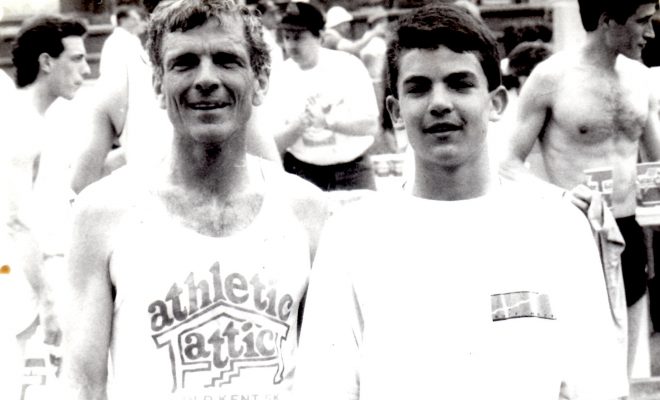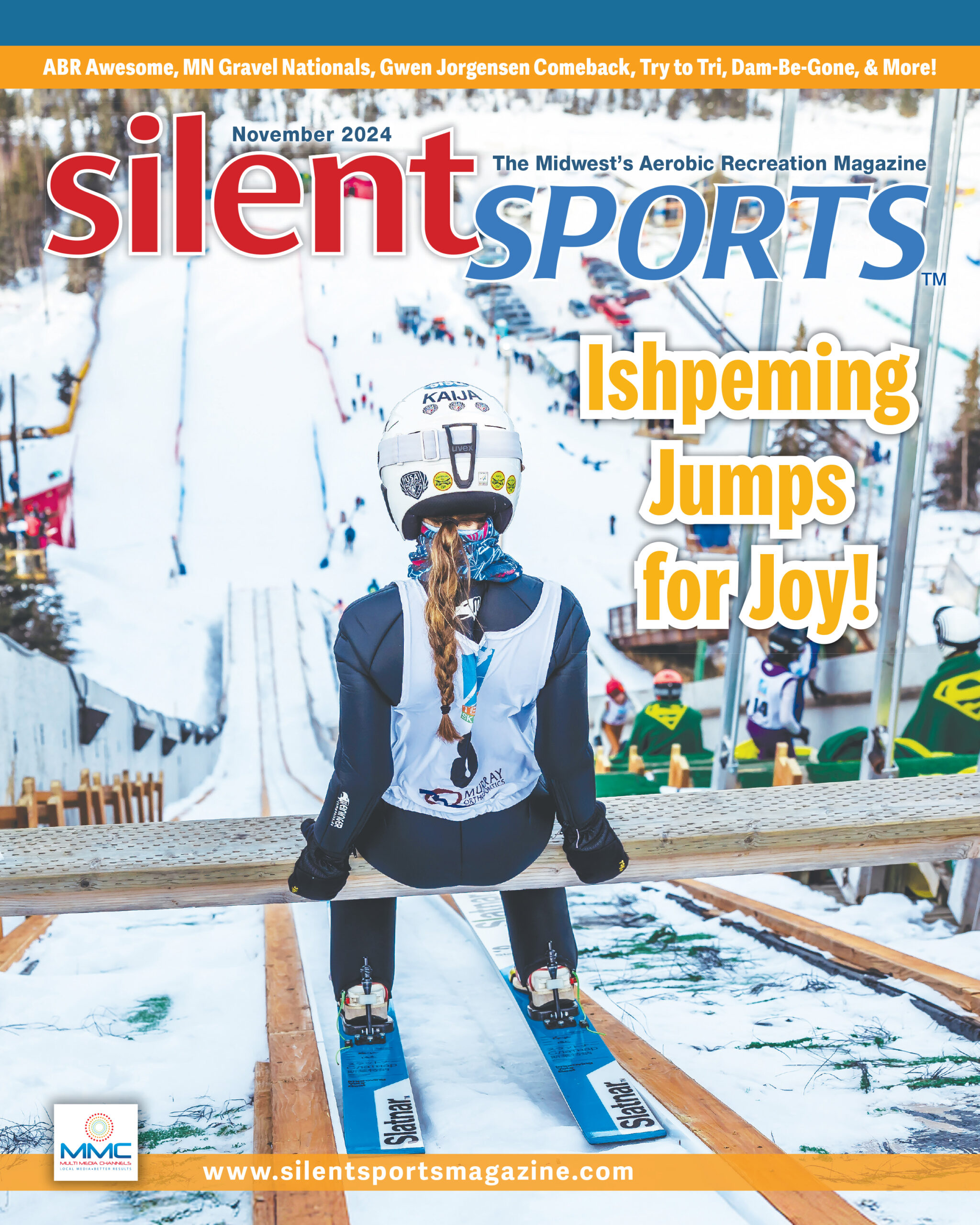Growing up with Running

BY DAVE FOLEY
I always wondered if my children would be runners. I hoped so, but more than that, I hoped that they would be able to make that choice without pressure. This would not be easy. My being a high school cross country coach, road race competitor, and Michigan Runner’s magazine editor put them in a runner’s environment every day. They were often asked by well meaning acquaintances, “Are you going to be a runner like your dad?” I don’t think they thought much about that question. But I did. It seemed to imply that whatever running they did would reflect my influence. If they succeeded, it would be because their dad was coaching them; if they failed or appeared unhappy, it would be because I was putting too much pressure on them. It seemed when it came to running they would be known as Dave Foley’s kids rather than Ben or Betsy Foley.
The best solution I felt was to let them take the initiative when it came to running. Over the years we played baseball, soccer, basketball, went swimming, canoeing, snowshoeing, cross country skiing, and even running together. What we did depended on where we were, what season it was, and what the most recent stimuli were. If we watched a basketball game, there would come a sudden urge to shoot some baskets. If a kid played on a baseball team, we played catch.
Ben, who was three years older than his sister, was the first to want to race. On Labor Day, Cadillac had a road race and, like many races in the 1980s, there was also a fun run. It was in this mile-and-a-half fun run that eight year-old Ben made his racing debut. He ran hard, had fun, and was proud of his finisher ribbon. He had a taste of racing and he wanted more.
As an editor and competitor, for me weekends meant races. The next spring, Ben joined me on my racing road trips. I’d race the longer competitions and he’d do the short ones. And we’d share race stories on the way home. About midway through the summer, Ben stated his attention to run the Labor Day 10K.
Knowing he had never run farther than two or three miles, I encouraged him to run several times a week and work up to where he could test himself with a six mile run so he would understand what it took to complete a 10K. I also knew that kids don’t appreciate a parent’s advice. Timing became important. When he brought up the subject of running, I tried to slip in some information about 10k training without being too obvious. Sometimes I would talk about someone, occasionally a fictitious being, who had asked me about running and I would relate the advice I had given. I tried to make these points as conversation pieces rather than parental advice.
We began to run together; I kept the pace at a rate he could easily handle. How he finished on Labor Day didn’t concern me, it was how he felt about running that mattered. On race day he ran a 49:49 and was elated. I was both proud and relieved to see him do so well.
Each year during the spring he rediscovered running. He’d run a few days a week, race several events in the 5k to 10k range, and when fall came, he’d pick up a basketball. When he was ten and I was forty, I would finish fifteen minutes ahead of him in a 10k. Each year the gap narrowed: to nine minutes when he was eleven, to five minutes when he was twelve, to four minutes when he was thirteen. I felt like a mountain climber descending from a peak. Once I’d done a 10k in 31 minutes and now I was lucky to run a 36. Each year I’d look down the mountain and see Ben climbing toward me, his times edging toward mine.
Coaching him became easier as his enthusiasm for running grew. We were now training partners. Several times a week we’d be out there gasping through speed work drills, charging up hill climbs side by side, and trading surges on fartlek runs. Whatever knowledge I had about racing I shared with him. By the spring of his fourteenth year the gap was measured in seconds- my 17:19 in the Old Kent 5K was nearly matched by his 17:35.
At the Dodge Park 3-Miler six weeks later, we lined up together. I took it out hard, hoping to wear him out so his superior kick wouldn’t be there for a sprint finish. He knew that’s what I’d do so he hung just off my shoulder running comfortably. Two miles into the run he came up beside me, and then pulled away, never looking back. “Looking back,” I’d told him, “tells the guy behind you that you’re worried.” He obviously wasn’t worried and neither was I. I chased after him hoping to catch him, but at the same time happy to see that his strength was genuine. I never felt better about losing to someone.
I think the question of “Are you going to be a runner like your dad?” has been answered. Ben Foley is a runner in his own right.
Ben’s now 42, married, father of two sons and living in Queens, New York. Several days a week he finds time for a run.

